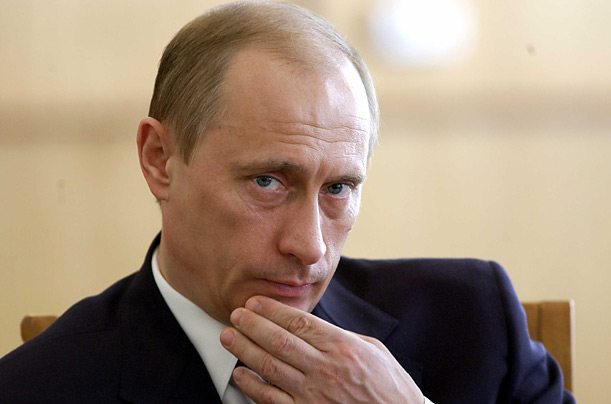Russia resisted Western pleas to help remove Syria’s President Bashar Assad from power despite escalating hostilities that have battered a UN peace mission.
“We believe that nobody has the right to decide for other nations who should be in power and who should not,” Russian President Vladimir Putin told reporters after a G20 summit at this Mexican beach resort.
“It is not changing the regime that is important, but that after changing the regime, which should be done constitutionally, violence is stopped and peace comes to the country,” he said.
US President Barack Obama said he told Putin and Chinese President Hu Jintao on the sidelines of the summit that Assad could no longer remain in power after the massacres of large numbers of civilians.
“I wouldn’t suggest that at this point the United States and the rest of the international community are aligned with Russia and China… but I do think they recognize the grave dangers of all out civil war,” Obama said.
France’s President Francois Hollande, however, said Russia “is playing its role to permit a transition.” He added: “Those who are massacring their people today cannot play a role in the future of Syria.”
The head of the UN Supervision Mission in Syria, meanwhile, told the UN Security Council of the intensifying violence in the country but said the nearly 300 unarmed monitors were “morally obliged” to stay.
“We are going nowhere,” Major General Robert Mood told reporters after the closed meeting.
UN peacekeeping chief Herve Ladsous reaffirmed the message. “We have decided, for the time being, not to touch, not to modify, but rather to maintain the integrity of the mission,” he told reporters.
The future of UNSMIS is being discussed as various diplomatic initiatives have been launched on Syria and the mission’s current mandate ends on July 20, Ladsous added.
Highlighting the dangers faced by the nearly 300 unarmed monitors in Syria, Mood, the head of the UN mission, told the meeting that UN vehicles had been hit 10 times by “direct fire” and hundreds of times by “indirect fire.” He said nine UN vehicles had been hit in the past eight days alone.
The use of improvised explosive devices (IEDs) and snipers has increased, causing many of the mounting casualties, Mood told the envoys as his team struggles to shore up a ceasefire supposed to take effect from April 12.
But he insisted the suspension of operations did not mean an “abandonment” of Syria. UNMIS was “morally obliged not to turn away” and “must redouble efforts,” Mood was quoted as saying.
The UN monitors are seeking to implement a six-point peace plan put together by UN-Arab League envoy Kofi Annan.
And earlier UN chief Ban Ki-moon called on the Security Council to put “sustained pressure” on Assad, saying he was “gravely concerned” about the rising death toll, a top aide said.
“A truly joint effort by the council, one that delivers unified and sustained pressure to demand compliance in full with the six-point plan is urgently needed,” assistant secretary general Oscar Fernandez Taranco said.
“Otherwise we may be reaching the day when it will be too late to stop the crisis spiralling out of control.”
Taranco told the Security Council the situation was “particularly alarming” in the flashpoint city of Homs, where human rights monitors say some 1,000 families have been trapped as government forces bombard rebel fighters.
Syrian forces clashed with armed rebels before dawn in Homs where a soldier was killed amid “intermittent shelling” of several neighborhoods, the Syrian Observatory for Human Rights said.
“Clashes took place this morning between regime forces and rebels in the vicinity of the Baba Amr neighborhood which has been under regime control since last March,” the Britain-based watchdog said.
“Columns of black smoke were seen rising from the area.”
In rebel hands for several months up until March this year, Baba Amr was shelled relentlessly by regime forces for a month.
The US military said meanwhile that Russia was preparing to deploy three naval ships to Syria for a mission that Moscow says is purely designed to ferry supplies to its base at the port of Tartus.
“Russian citizens have been threatened there in Syria, and their stated intention is that this is for force protection reasons of their own. That’s what we believe to be the case,” Pentagon spokesman Captain John Kirby told reporters.
They were in addition to a Russian cargo ship allegedly carrying attack helicopters to Syria, which was turned back from British waters after its insurance coverage was revoked.











